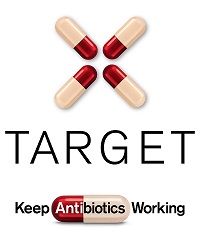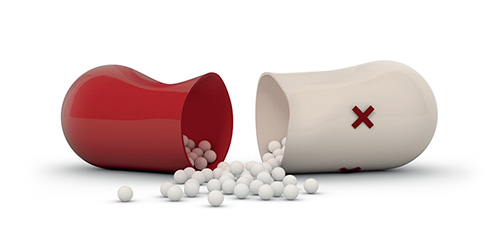Leaflets to discuss with patients
 Using patient
leaflets interactively in consultations is the best way to support effective discussions and maintain patient satisfaction.
Using patient
leaflets interactively in consultations is the best way to support effective discussions and maintain patient satisfaction.
Version 1.0, November 2021.
RTI Leaflet
RTI Leaflet – web version
Treating your respiratory tract infection (RTI)
Version 10.0. Published: November 2024. Revision date: November 2027
Developed with healthcare professionals, patients and professional medical bodies. TARGET is operated by the UK Health Security Agency
Most infections are better by
Middle-ear infection
Most are better by…3 days (can last 7 to 8 days)
Sore throat
7 to 8 days
Sinusitis
14 to 21 days
Common cold
14 days
Cough or bronchitis
3 to 4 weeks
Other Infection
Ask your clinician
How to look after yourself and your family
- Have plenty of rest
- Drink enough fluids to avoid feeling thirsty
- Ask your local pharmacist to recommend medicines to help reduce your symptoms or pain (or both)
- Fever is a sign your body is fighting the infection. It usually gets better by itself in most cases. You can use paracetamol if you (or your child) are uncomfortable because of a fever
- Use a tissue to cover coughs and sneezes and wash your hands with soap to help prevent spreading infection to your family, friends and other people
Never share antibiotics and always return any unused antibiotics to a pharmacy for them to dispose of safely.
When to get help
If any of the below apply to you or your child, get an urgent assessment from a healthcare professional. If your child is under the age of 5, to A&E immediately or call 999.
- Your skin is very cold or has a strange colour, or you develop an unusual rash
- You have new feelings of confusion or drowsiness or have slurred speech
- You have difficulty breathing. Signs that suggest breathing problems include:
- breathing quickly;
- turning blue around the lips and the skin below the mouth;
- skin between or above the ribs getting sucked or pulled in with every breath
If you (or your child) have any of the following symptoms, are getting worse or are sicker than you would expect (even if your temperature falls), trust your instincts and get medical advice urgently from NHS 111 or your GP.
- You develop a severe headache and are sick
- You have a red, swollen tongue
- You have redness, swelling and pain around the eyes or the ears
- You develop chest pain
- You have difficulty swallowing or are drooling
- You cough up blood
- You are peeing very little, or not at all
- You are feeling a lot worse
- Your child has a middle-ear infection and fluid is coming out of their ears or they have new deafness
Less serious signs that can usually wait until you visit a pharmacist or your next available appointment
- You are not starting to improve a little by the time given in the ‘Most are better by 3 days column in the table above
- You have mild side effects such as diarrhoea. Get advice from a healthcare professional if concerned
Back-up antibiotic collection
Your clinician can advise how long you should wait before you collect a back-up antibiotic prescription, only if you are not starting to feel a little better or you feel worse.
- Colds, most coughs, sinusitis, ear infections, sore throats, and other infections often get better without antibiotics, as your body can usually fight these infections on its own
If you need antibiotics, take them exactly as prescribed. Never save them for later and do not share them with others. For more information, visit: www.antibioticguardian.com.
Why it is important to take antibiotics as prescribed
- Taking any antibiotics makes bacteria that live inside your body more resistant. This means that antibiotics may not work when you really need them
Antibiotics can cause side effects such as rashes, thrush, stomach pains, diarrhoea, reactions to sunlight, other symptoms, or being sick if you drink alcohol with the antibiotic metronidazole.

For any leaflet queries please contact us:
TARGETantibiotics@ukhsa.gov.uk